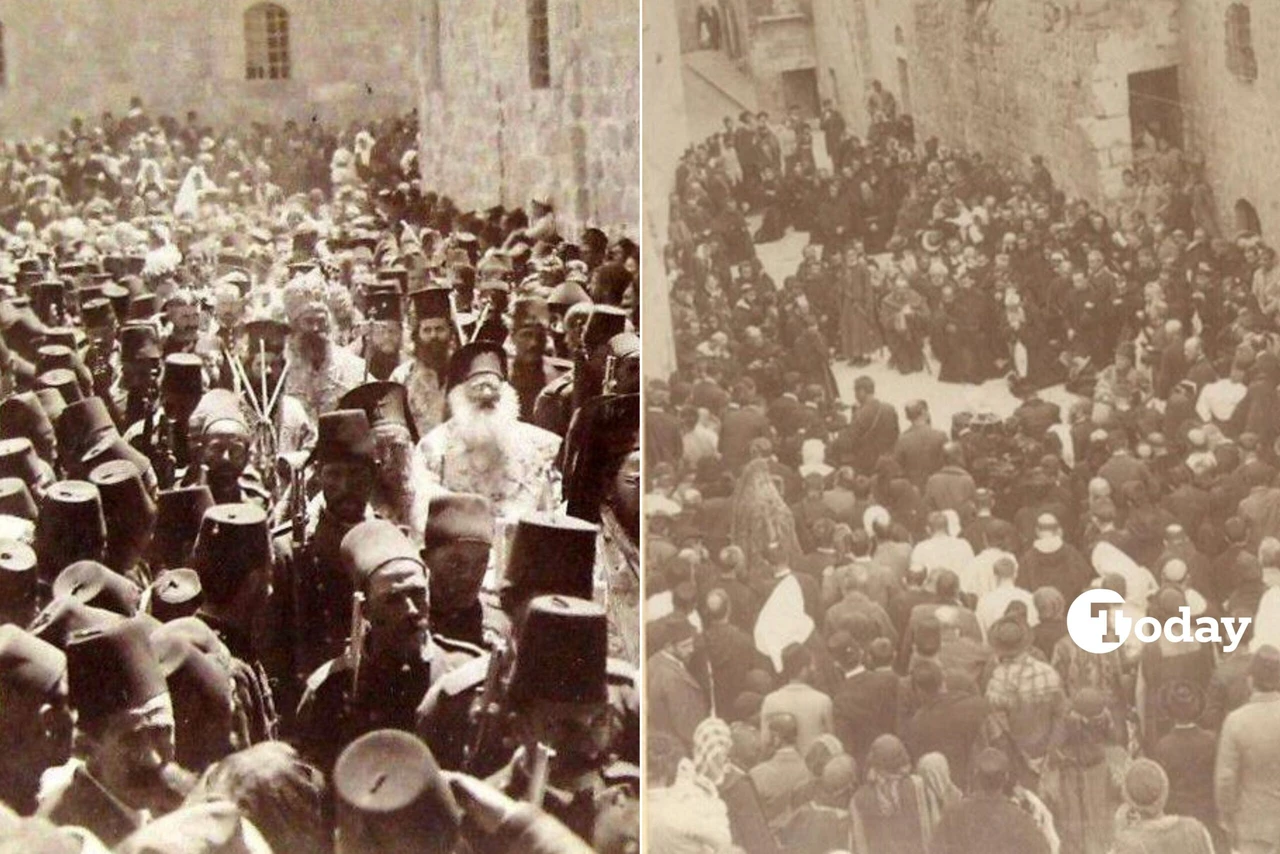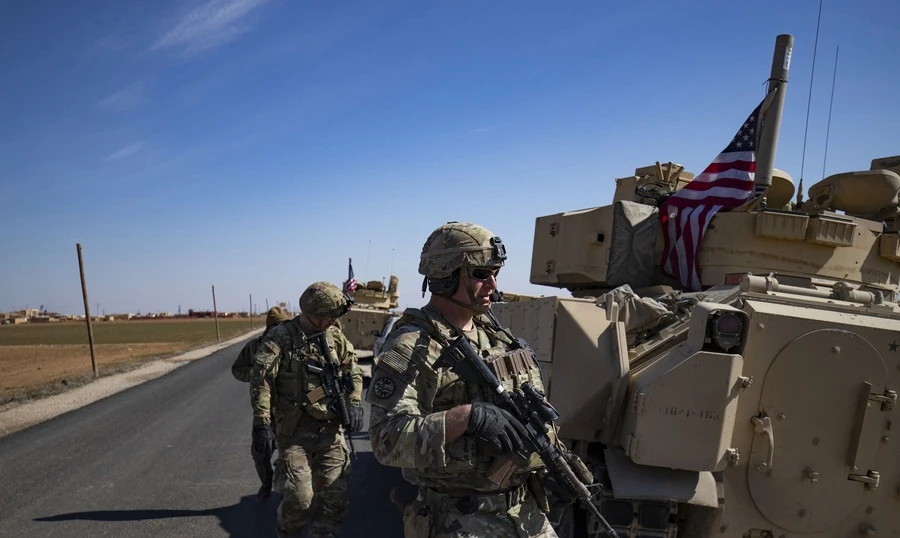New architectural treasures uncovered in ancient city of Van
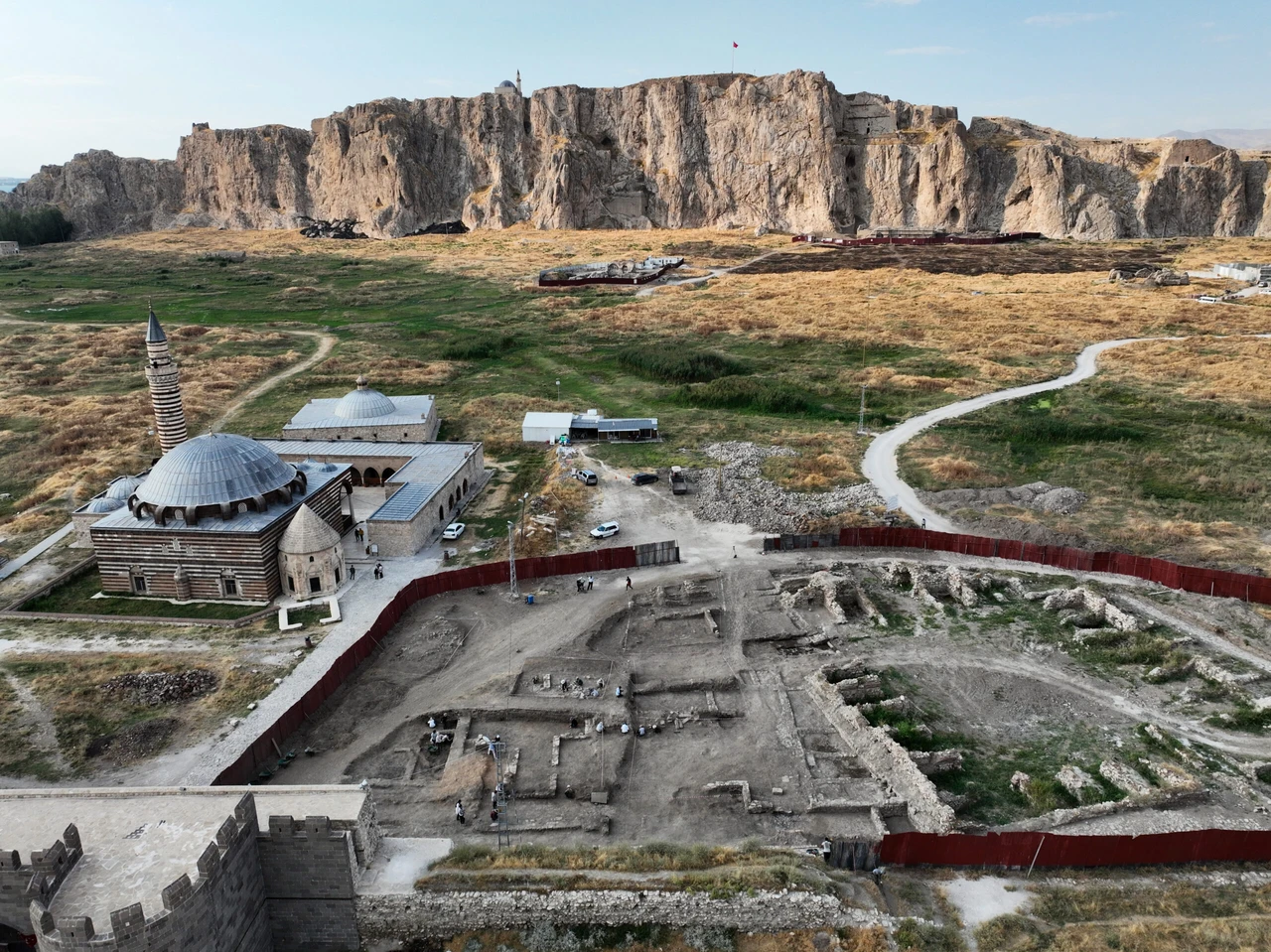 New structures uncovered during excavations at “Ancient Van City,” Van, Türkiye, August 23, 2024 (AA Photo)
New structures uncovered during excavations at “Ancient Van City,” Van, Türkiye, August 23, 2024 (AA Photo)
Archeologists uncovered new architectural treasures through ongoing excavations in the ancient city of Van, located south of the renowned Van Castle. This site, rich with traces from various civilizations, is undergoing extensive archaeological exploration led by Van Yuzuncu Yil University (YYU) under the guidance of professor Gulsen Bas Terzioglu, supported by the Ministry of Culture and Tourism.
Terzioglu shared that this year’s work started with meticulous documentation and mapping of planned excavation areas.
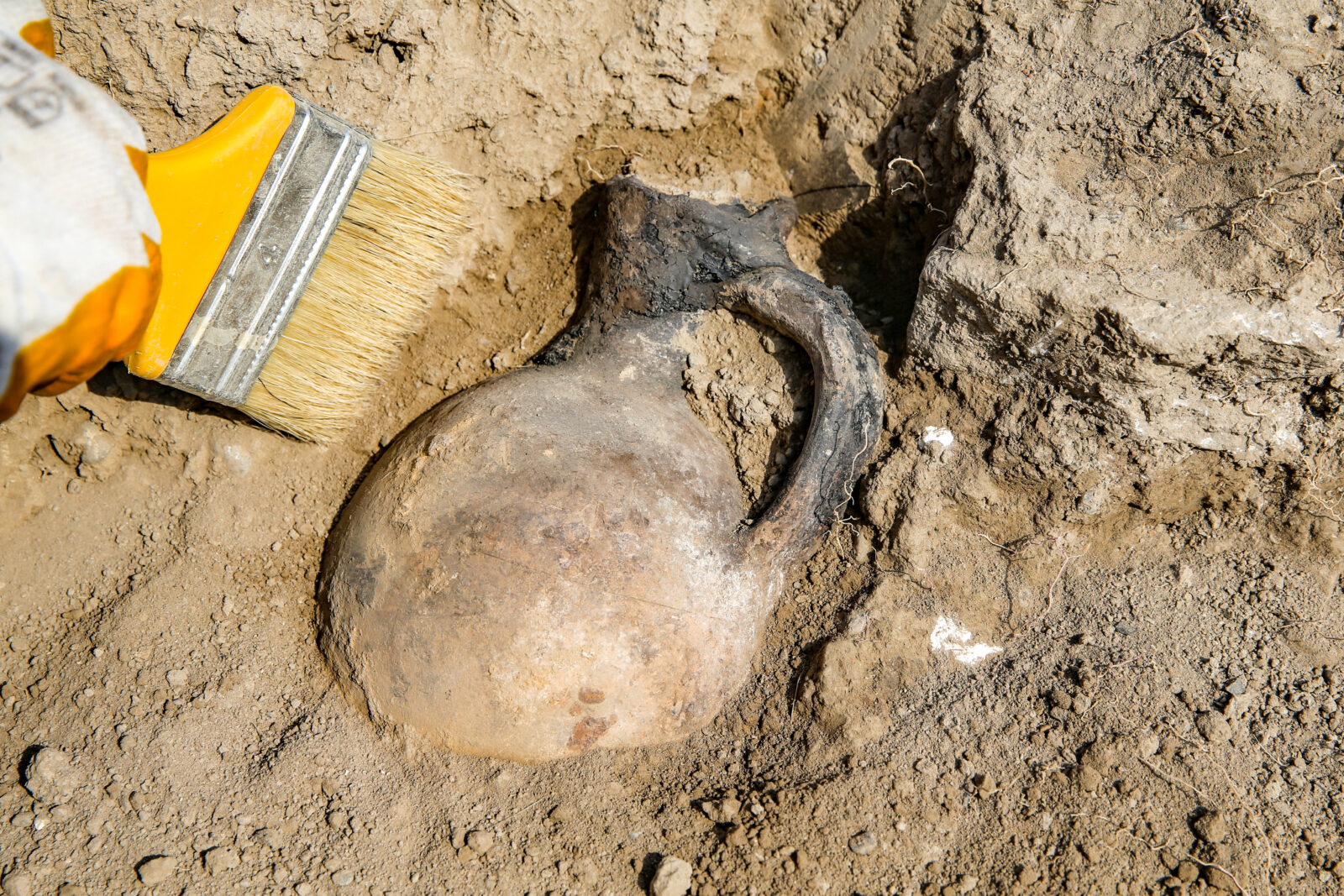
A significant focus is on uncovering architectural structures buried beneath the soil, particularly to the west of the 16th-century Ottoman landmark, Husrev Pasha Inn. The team has already uncovered stone-walled sections that suggest the presence of a historical marketplace.
Key discoveries include burned documents, fabric remnants, ceramic plates, glass bracelet fragments, beads, bronze coins, and tobacco pipes, offering a vivid glimpse into the social life of the ancient city of Van. These findings highlight the area’s importance as a thriving cultural and commercial center.
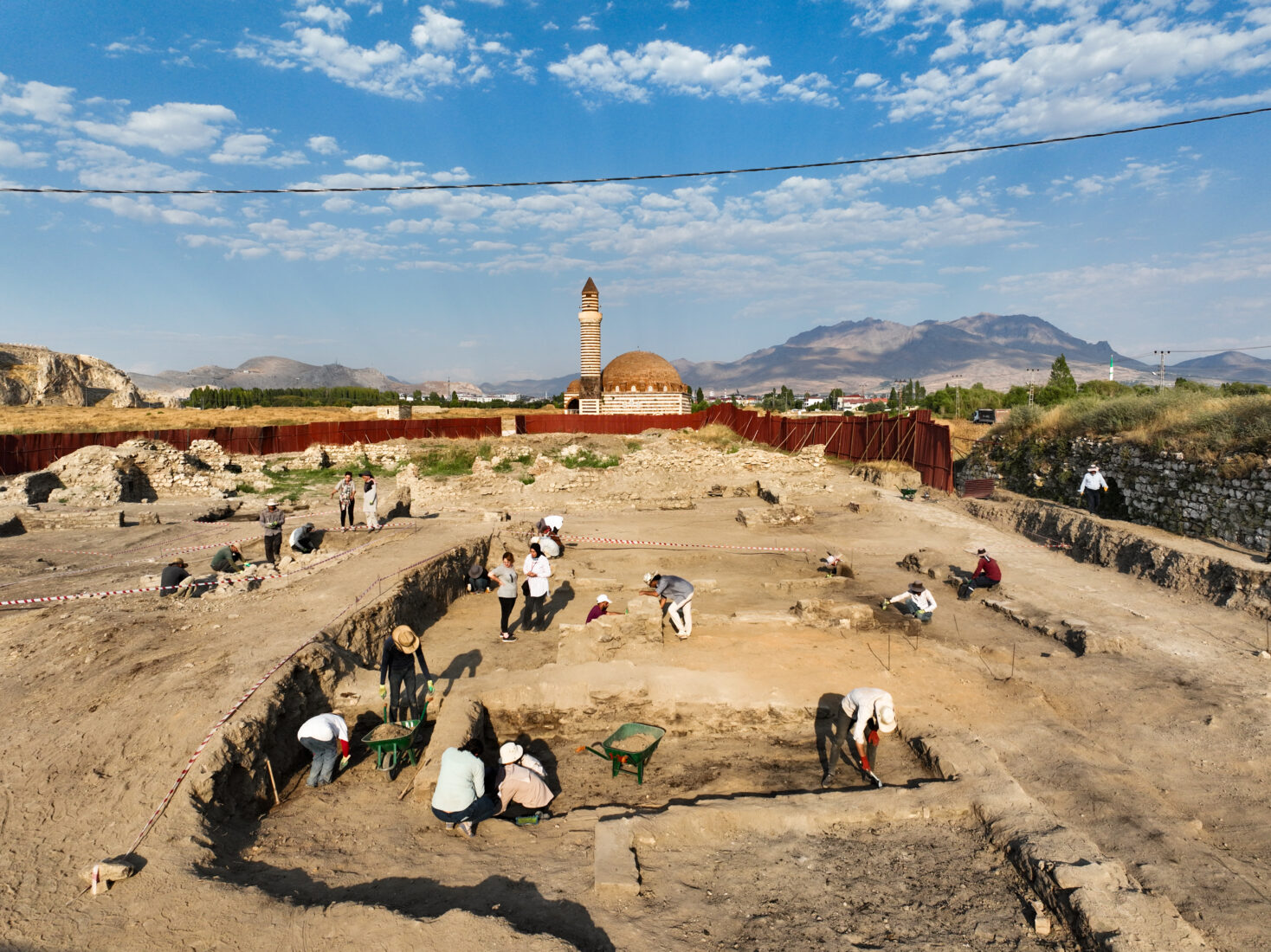
Restoring Van’s architectural heritage: Ottoman-era market and more
The restoration efforts in the ancient city of Van include significant landmarks like the Grand Mosque, Kizil Minaret, Abbasaga Mosque, Husrev Pasha Inn, Twin Baths, Miri Granary, two churches, and a cistern. With the discovery of a new road connecting these structures, the project aims to fully restore the site’s historical splendor, enhancing Türkiye’s tourism potential.
Terzioglu emphasized that the excavation also uncovered a stone-paved Ottoman road leading to the Twin Baths, further revealing the city’s rich infrastructure. The findings will provide deep insights into the social, political, religious, and economic life of this historical region.
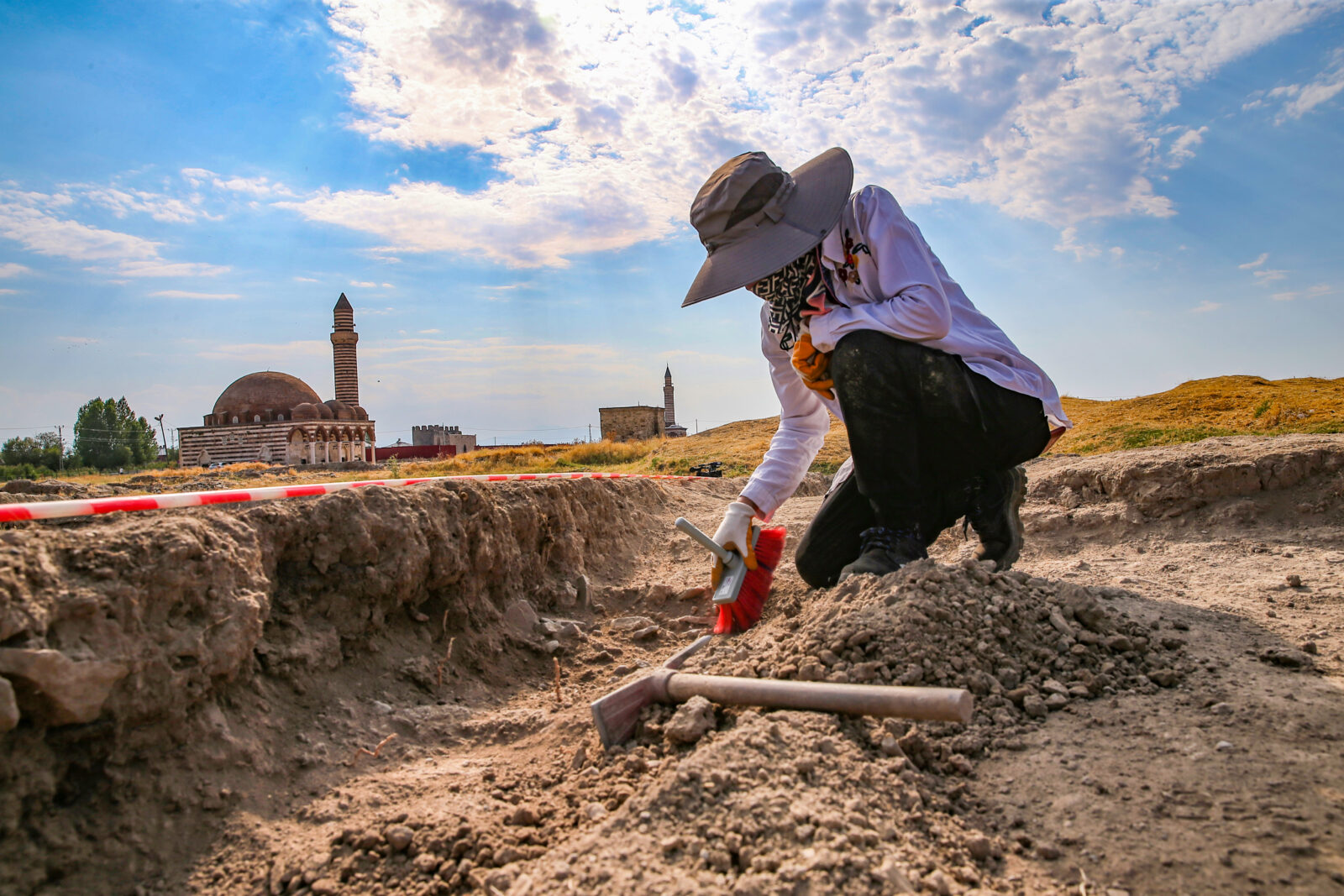
Ancient city of Van: Hub of history and culture
Van YYU rector, professor Hamdullah Sevli, highlighted the significance of this major excavation in preserving Van’s Ottoman and Seljuk heritage.
He noted that the city’s historical architecture suffered immense destruction during the Armenian uprisings and Russian occupation between 1915-18, but recent restoration efforts are bringing the area’s rich history back to life.
Sevli expressed optimism that with the continued support of the Ministry of Culture and Tourism, the ancient city of Van will soon become a prominent center for history, trade, culture, and tourism, drawing visitors from around the world. The excavation is expected to uncover even more valuable insights into the city’s past, confirming its role as a key hub of trade and religious activity throughout history.
